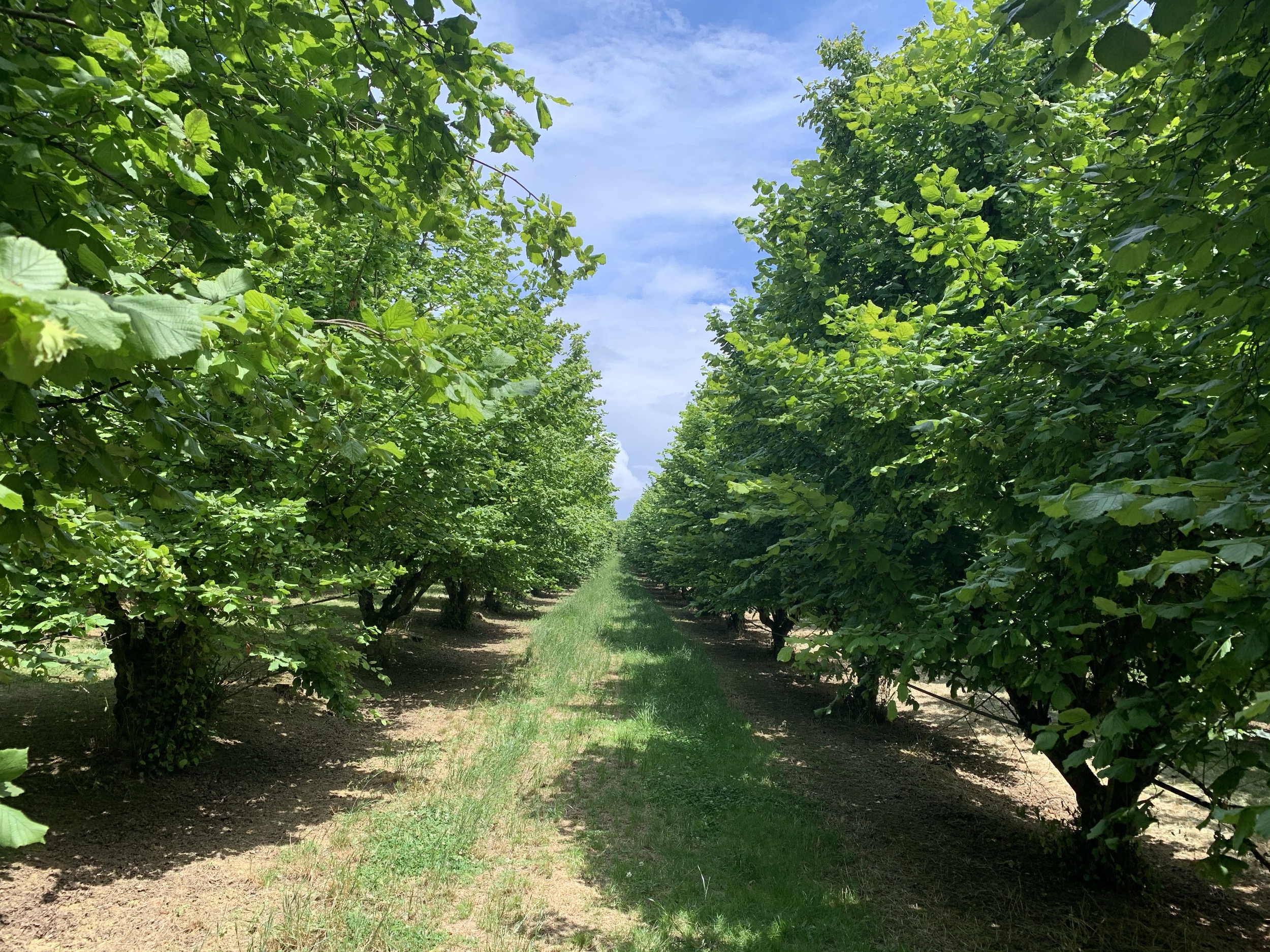
Organic orchard implementation support
GreenPods, a new-generation agricultural startup, aims to introduce the cultivation of high-value organic nuts in Europe. To achieve this goal, the company has identified a farm in the South of France and is seeking a consultancy firm with expertise in assessing the feasibility of converting the farm to organic almond production and large-scale irrigated crops.

Organic orchard implementation support
The client required a realistic and innovative development plan to initiate production of organic almonds and to deliver an operations’ plan fulfilling the necessary requirements for organic and regenerative agriculture certification. The objective was to utilise and build-up the available assets from an historical corn farm and to convert them to innovative and sustainable agriculture.
After confirming the technical capacity of the identified investment opportunity to Greenpods, the Expert Farmer team undertook a comprehensive benchmark analysis of organic almond production worldwide and updated the Business Plan supporting the client to raise funds and start its projet.
Expert Farmer as successfully completed a comprehensive project involving several key steps. Initially, we established a clear direction for the venture, emphasizing sustainable farming, eco-friendly approaches, and the reduction of greenhouse gas emissions. We appraised the current hazelnut and almond production systems in southern France, Spain, and California, specifically examining factors such as planting density and irrigation methods to adapt for this pioneer project.
During our on-site evaluations, we analyzed the potential land and soil quality for both perennial crops, such as almond trees, and large-scale crops like soy, sunflowers, barley, wheat, and alfalfa. We evaluated the existing water resources and irrigation systems, and we gathered and examined climate and soil data to confirm the site’s suitability for organic farming. We also reviewed the existing farming equipment fleet to determine its capacity to support organic and regenerative farming practices.

Our technical due diligence culminated in a thorough report summarizing our findings and recommendations. We highlighted crucial success factors and identified potential roadblocks for resolution, facilitating a seamless investment journey. We also provided insights on the land’s value, assets, and infrastructure, helping our client set a fair market price.
As part of the business plan update, Expert Farmer has developed the crop mix and rotation plan, as well as crop management strategies for both perennial and annual crops. We designed an initial farm layout, listed necessary equipment, and identified required infrastructure. Furthermore, we estimated operating expenses (OpEx) and capital expenditures (CapEx) for both perennial and annual crops. We updated the technical and economic assumptions in the business plan based on the results of the site assessment and operations planning.
Learn more about the success of GreenPods on their webpage.
Technical due diligence comprises a fair and independent analysis of all technical aspects of the targeted farming enterprise with the objective of assessing its viability and interest for acquisition or its capability of integrating third party existing ventures.
Expert Farmer implements a unique approach which has evolved from its extensive know-how in the practical management and development of agricultural projects. We provide it in order to assess the current technical and economic results of the target project. This process also aims to confirm the business plan’s feasibility in view of further project development in the future. Technical due diligence will reassure the stakeholders regarding the estimates of CapEx and OpEx requirements as well as the realism of the production scenarios.
- Review of the historical technical parameters of the targeted enterprise: natural resources and conditions, achieved yields and evolution, crop husbandry plans, available staff and organization.
- Evaluation of the available assets’ status, capacity and comparison with production parameters (area, target crops and potential).
- Review and validation of the Business Plan related to crop or livestock production, technical assumptions’ and review of the total productive area.
- Review and validation of key economic assumptions of the Business Plan related to selling price, input costs, energy costs, maintenance costs, HR costs, other fixed costs and amortization plan.
- Analysis and validation of all key financial assumptions including the cash flow perspective and forecast.